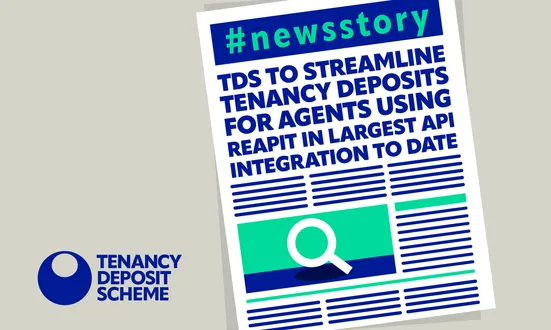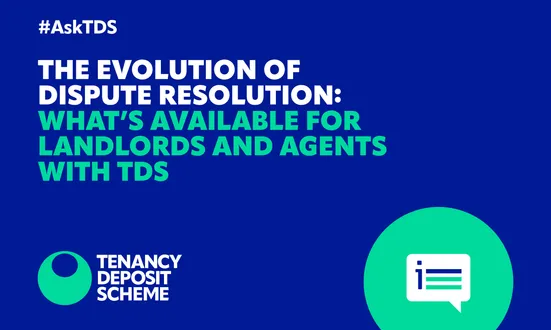With the amended Renters (Reform) Bill now making its way to the House of Lords, NRLA Chief Executive Ben Beadle reflects on the association’s success in helping shape a bill that balances protections for landlords and tenants.
There have been countless column inches devoted to the Government’s plans to change the way in which the private rented sector operates – with its Renters (Reform) Bill having completed its passage through the House of Commons last week (Wed 24th)
Since plans to end section 21 were mooted five years ago, the NRLA has campaigned long and hard for adjustments in five key areas, to ensure the Bill was fair to landlords, while allowing the Government to meet its commitment to tenants.
It called on ministers to:
- End the anti-landlord rhetoric and garner support for good landlords.
- Address issues in the student housing market stemming from plans to abolish fixed-term tenancies.
- Establish firm procedures with regards to anti-social tenants.
- Commit to reform the courts before the removal of Section 21.
- Abolish local licensing.
And the Government listened.
While the Bill that will make its way to the Lords next month is far from perfect, tireless campaigning has seen movement on each and every one of these calls, with amendments tabled committing the Government to:
- Carrying out a full review of the courts before Section 21, the so-called ‘no fault eviction’ is abolished for existing tenancies.
- Introducing rules meaning tenants cannot hand in their two months’ notice within the first four months of a tenancy (effectively introducing a minimum six-month period by default).
- Extending the mandatory possession ground for student lets to all student homes, not just HMOs.
In addition, the Government has committed to undertake a review of landlord licensing schemes given plans for a new Property Portal of rented housing.
We believe the amended Bill does now balance the rights of good landlords with the commitment the Government has made to tenants; something that’s vital if landlords are to have the confidence to remain in the sector and continue to invest.
Less than 24 hours after housing minister Jacob Young successfully moved the amendments he conducted a webinar and live Q&A session with NRLA members, outlining the detail of the Bill, including plans to look at licensing fees and locations, as well as the Government’s decision to undertake a full review of the court system before section 21 is abolished.
Members who missed out on the exclusive webinar on Thursday can catch up by watching here. The recording will also be available to new members, so if you would like to join more than 108,000 fellow property professionals in the country’s largest landlord association click here to become a member today.
What happens next?
Traditionally debate in the Lords is more lengthy and extensive than that in the Commons, and over the coming weeks we are likely to hear lot of noise about further amendments to the legislation.
While it is likely a number of peers will table amendments for debate, these are highly unlikely to be adopted by the Government and the Bill is expected to continue its progress through Parliament largely unchanged.
The Opposition has said it does not plan to block the Bill, despite its concerns that it does not go far enough, and the Conservatives have a large enough majority in the Commons and reserve the right, once the Bill returns to the House, to reverse any changes made in the Lords that would alter its stated policy intentions.
It is difficult to predict exactly how long the remaining stages will take to complete, but it is possible that its passage through the Upper House could be complete by the autumn. After this, the Bill will be sent to the King for Royal Assent and will move into law so that it can begin to be implemented.
We are confident the Bill as it stands delivers a balance for landlords and tenants, and it is in the interests of both that the Bill passes smoothly through these final stages.
More information
To read the latest on the Bill’s progress through Parliament, and the NRLA’s work to shape recent amendments click here.
Exclusive savings for TDS and NRLA customers
Register your deposits with The Tenancy Deposit Scheme and become an NRLA member to SAVE 33% on TDS Insured and enjoy £15 OFF NRLA membership. Click here to join today.
About the author

Ben Beadle is chief executive of the National Residential Landlords Association (NRLA), the UK’s largest trade body for landlords.
A landlord himself since the age of 20, Ben started out as property manager before working his way up through the ranks at the Tenancy Deposit Scheme.
He was then Operations Director at property management business Touchstone before overseeing the merger of the National Residential Landlords Association (NLA) and Residential Landlords Association (RLA) to create the new trade body earlier this year.
His key aims as head of the organisation are to strengthen the voice of landlords in Westminster and Cardiff, to improve the reputation of landlords in the media and to support members through information, training and accreditation.
NRLA: The NRLA updates landlords on all the latest legislation changes affecting the sector and offers expert advice, training and other exclusive services and benefits.
The views expressed in this content are solely those of the author alone and do not necessarily represent the views of TDS, its officers, or employees. To read more on TDS views, visit our Policies & Procedures webpage.

Other news stories


